NYC’s Forgotten ‘War on Christmas Trees’
Discover how an obscure holiday crackdown affects festive street vendors today!


Benrubi Gallery in West Chelsea is currently hosting “Asylum,” an exhibition featuring photographs of abandoned psychiatric hospitals by Christopher Payne, the subject of his 2009 book Asylum: Inside the Closed World of State Mental Hospitals. The photos present views that are both stark and poignant, showing these institutions that Payne describes as being impressive, self-sufficient complexes that provided a place of refuge but which also functioned as human warehouses.
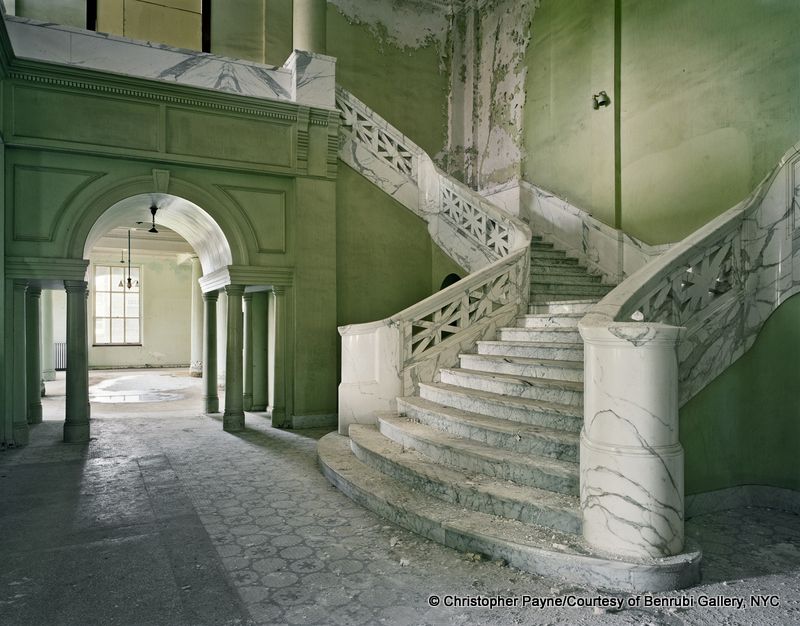
Lobby of Mead Building, Yankton State Hospital, SD, 2008
We’ve previously featured Payne’s photography work on Untapped Cities, including his shots of the Steinway Piano factory and North Brother Island. This past Thursday, in an artist talk at Benrubi Gallery, Payne, traced the history of state mental hospitals in the United States. Beginning in the first half of the nineteenth century, states constructed “insane asylums” to house those deemed mentally unfit.
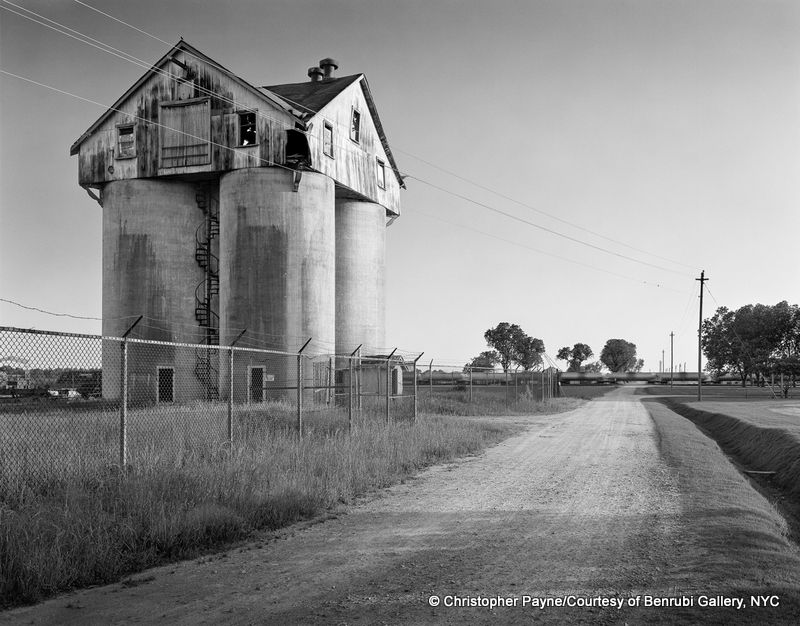
Farm silos, Cherry State Hospital, Goldsboro, NC 2007
In an era when the role of government was limited, these asylums were among some of the largest buildings in the country. They were built in the countryside and, with the United States still a primarily agricultural society, they developed as self-sufficient communities. They had their own farms, bakeries, tailor shops, staff housing, energy plants, and all the other facilities one would expect to find in a small city. Although the asylums had sizable workforces, the farms and many of the other activities were staffed in large part by the asylum inmates themselves.
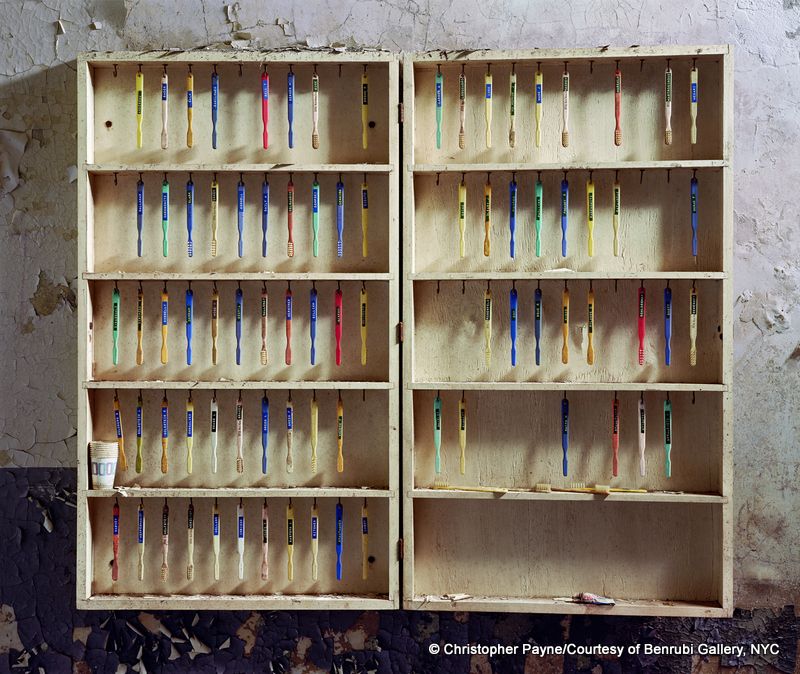
Toothbrushes, Hudson River State Hospital, Poughkeepsie, NY 2005
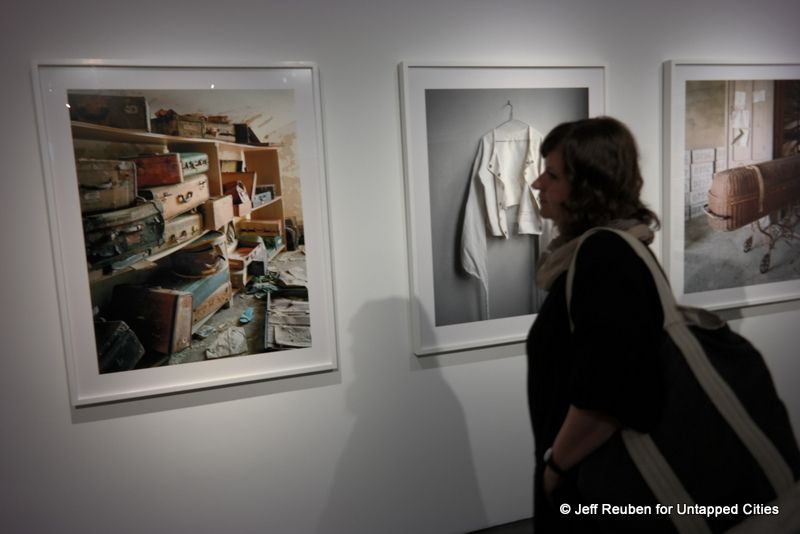
Asylum Exhibition at Benrubi Gallery
Asylums were designed with a civic idealism that foreshadowed the City Beautiful movement that would later emerge around the turn of the century. They were grand, architecturally attractive structures with extensive landscaping. Frederick Law Olmsted, co-creator of Central Park and Prospect Park, also designed asylum grounds and his techniques were widely emulated.
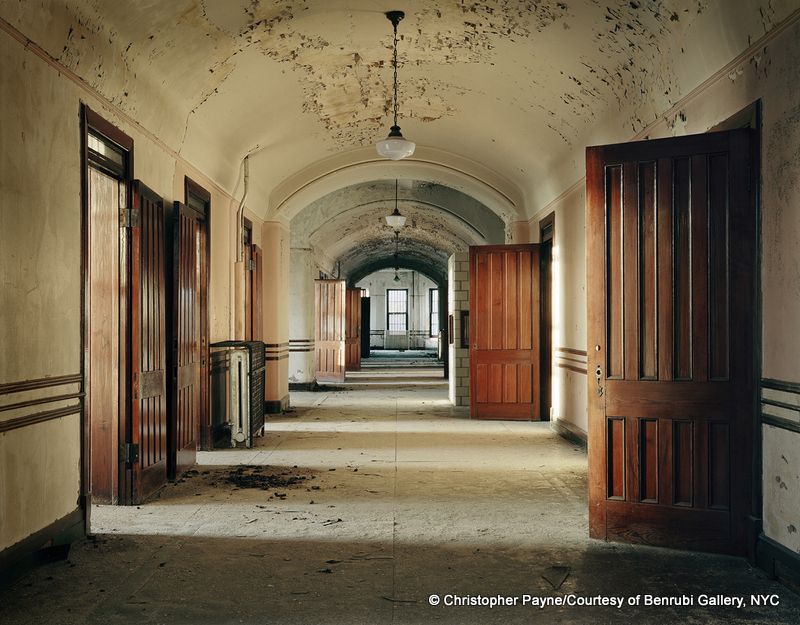
Typical Ward, Kankakee State Hospital, Kankakee, IL 2007
Payne notes that asylums continued to function as large, self-sufficient facilities until the late 1960s, when changes in laws, societal values, and medical approaches resulted in a sharp decline in the size of institutionalized populations. Since then, many facilities have either closed or been scaled down substantially. Another change over the years was in nomenclature; asylums came to be known as “state hospitals” and nowadays are often called psychiatric or mental health centers.
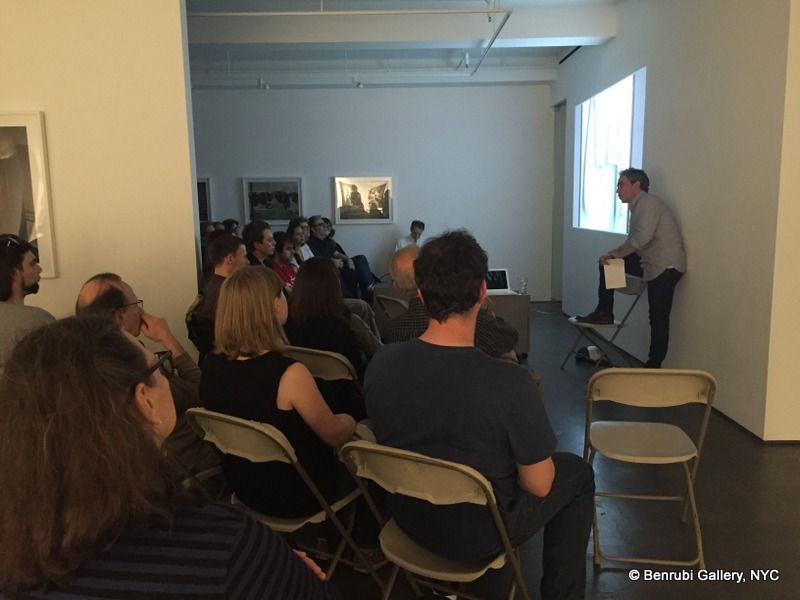
Christopher Payne Artist Talk at Benrubi Gallery
In 2002, Payne, a former architect, became interested in abandoned asylums. He visited 70 asylums in 30 states over a six-year span and completed the book, Asylum: Inside the Closed World of State Mental Hospitals in 2009.
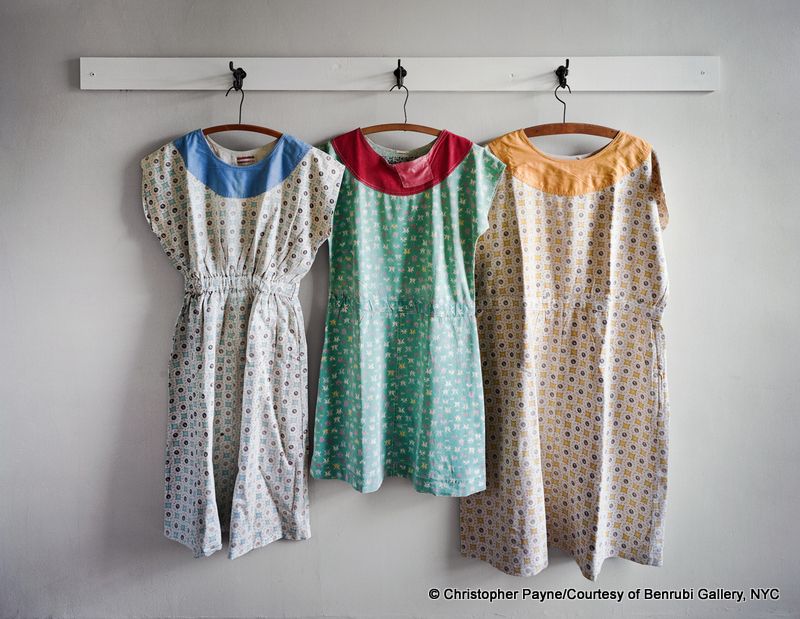
Patient dresses made at Clarinda State Hospital, Clarinda, IA 2008
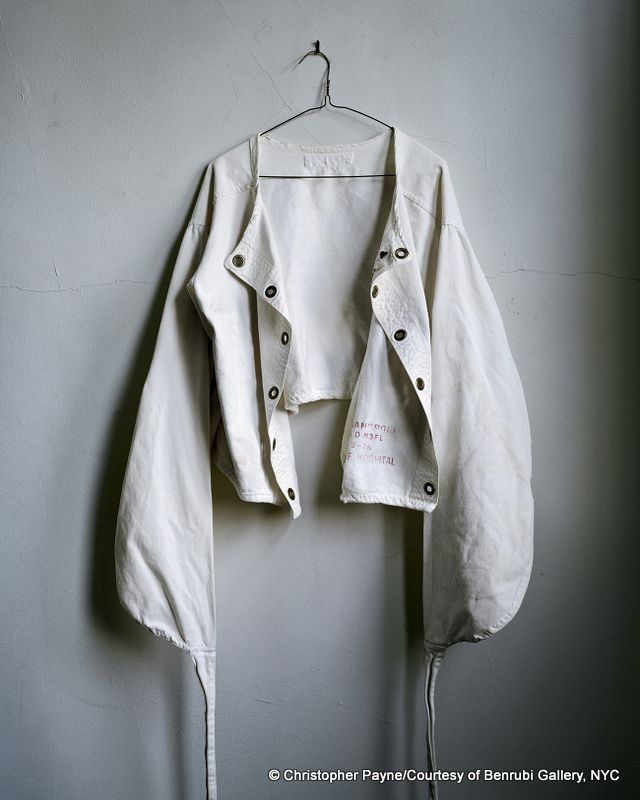
Straight Jacket, Logansport State Hospital, Logansport, IN 2007
Payne was intrigued by the massive physical scale and the little known history of these institutions. Reflecting the comprehensiveness of these self-sufficient institutions, he found everything from theaters that provided entertainment, to dress shops. There were also places associated with death, including autopsy theaters and cemeteries as many patients never returned to society.

Panorama Danvers State Hospital, Danvers, MA 2003
Many of the old asylums, including several Payne visited, have been demolished in recent years. Examples include large portions of Pilgrim State Hospital on Long Island, the place which spurred Payne’s interest, and Danvers State Hospital in Massachusetts and. Payne was granted permission to photograph the latter, a striking red brick Gothic complex, shortly before demolition began. Although a portion of the original structure was retained, most of the property was cleared and redeveloped as a residential development. Payne ended his artist talk by quoting the rueful observation of a construction manager who worked on the Danvers site; they replaced a distinctive building “and now the site is a place like any other.”
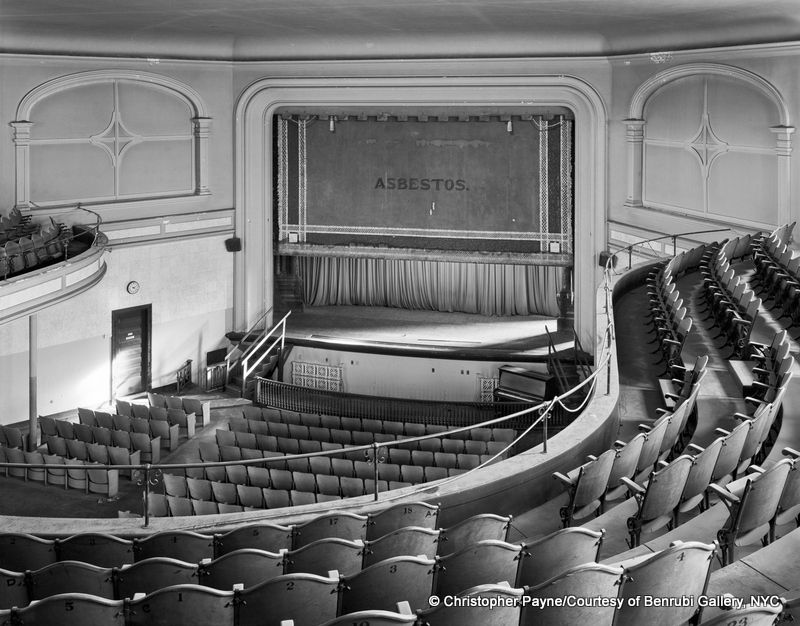
Noble Hall, Connecticut Valley State Hospital, Middletown, CT 2003
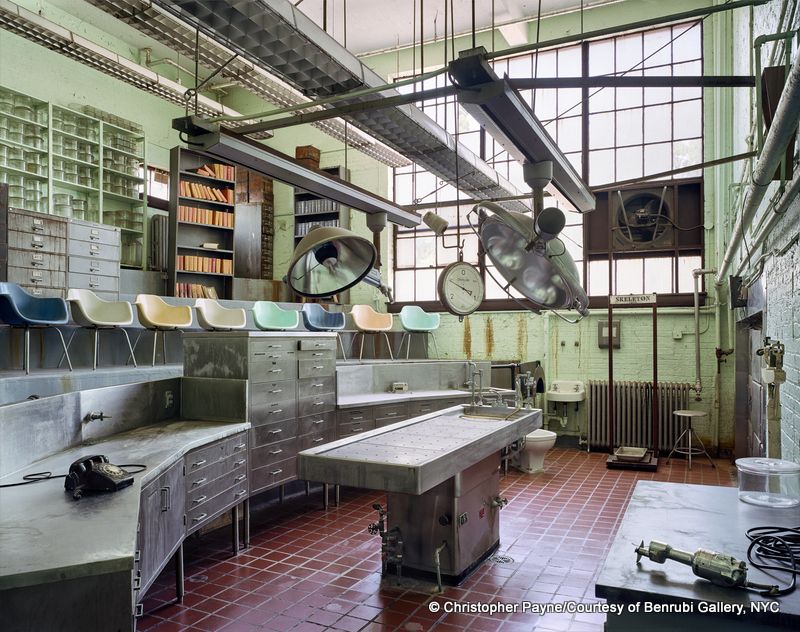
Autopsy Theater, St. Elizabeth’s Hospital, Washington, DC 2005
Christopher Payne – Asylum is currently on display at Benrubi Gallery until March 26, 2016. Benrubi Gallery is located at 521 W. 26th Street, 2nd floor, New York, NY 10001
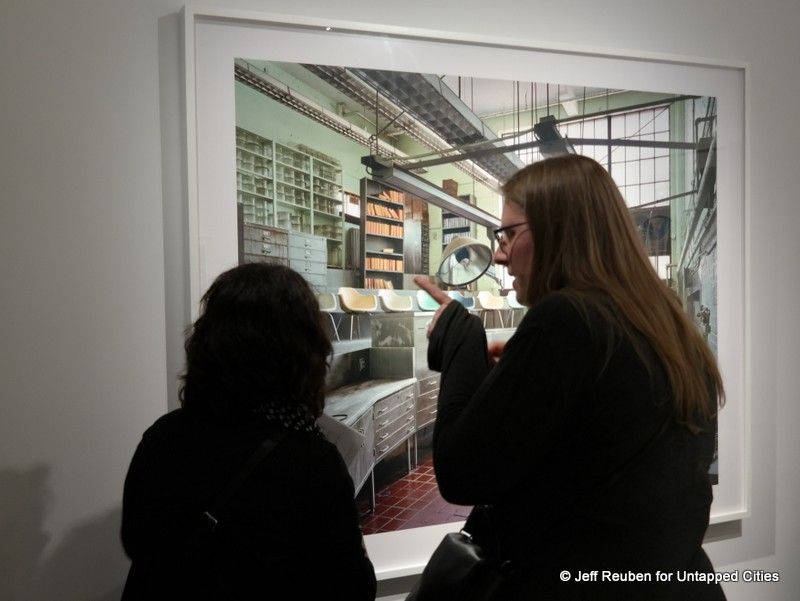
Next, read about the abandoned Kings Park Psych Hospital on Long Island, Payne’s photographs of North Brother Island, and Payne’s photographs of the Steinway Factory. Contact the author @Jeff_Reuben.
Subscribe to our newsletter